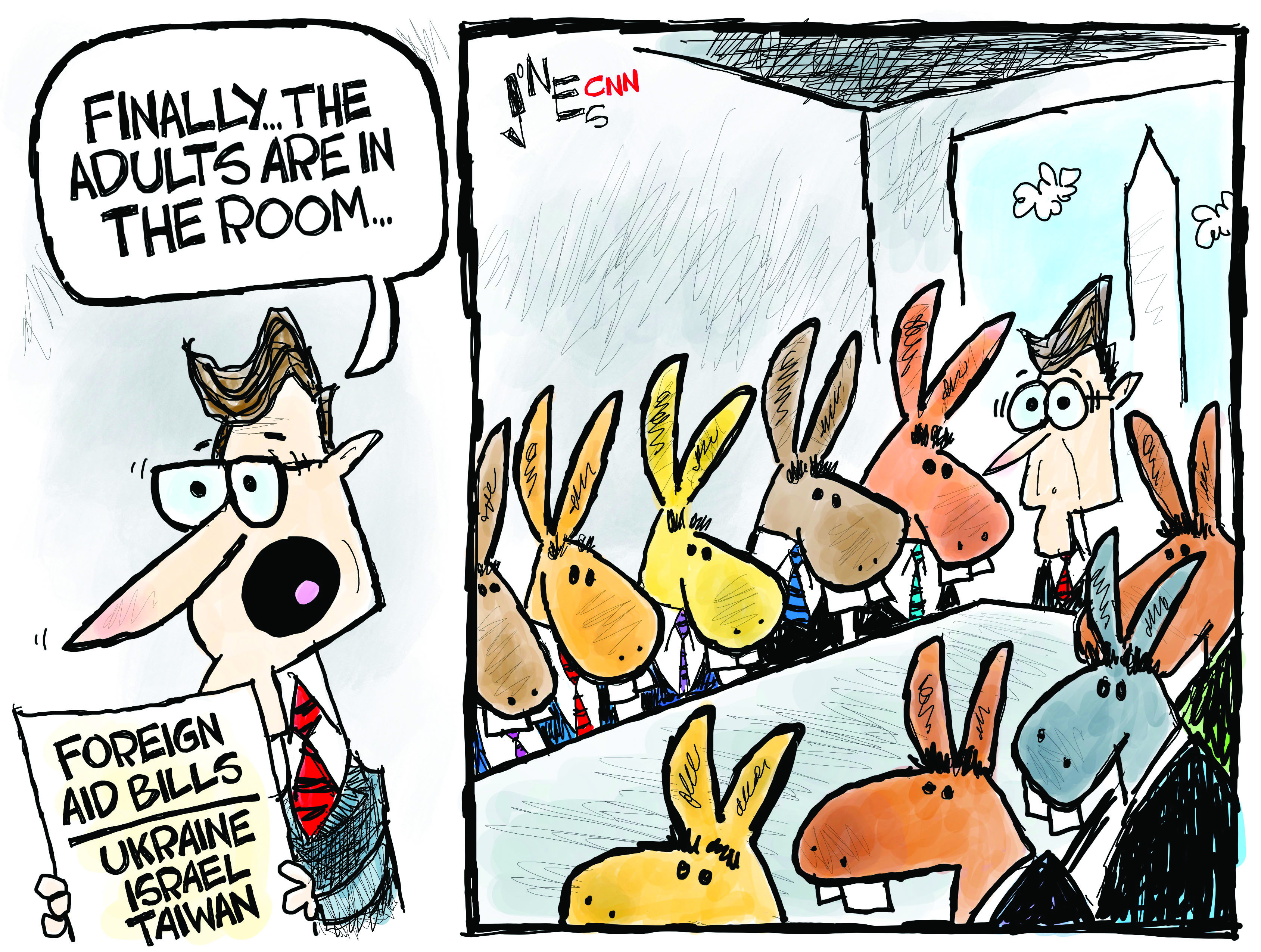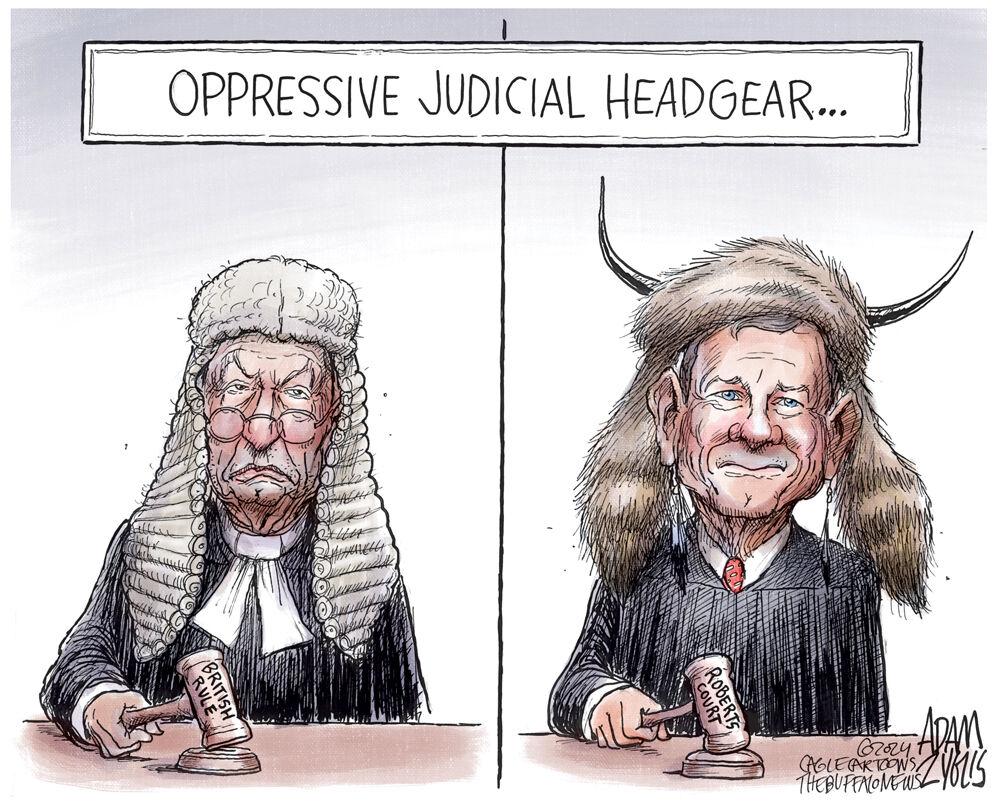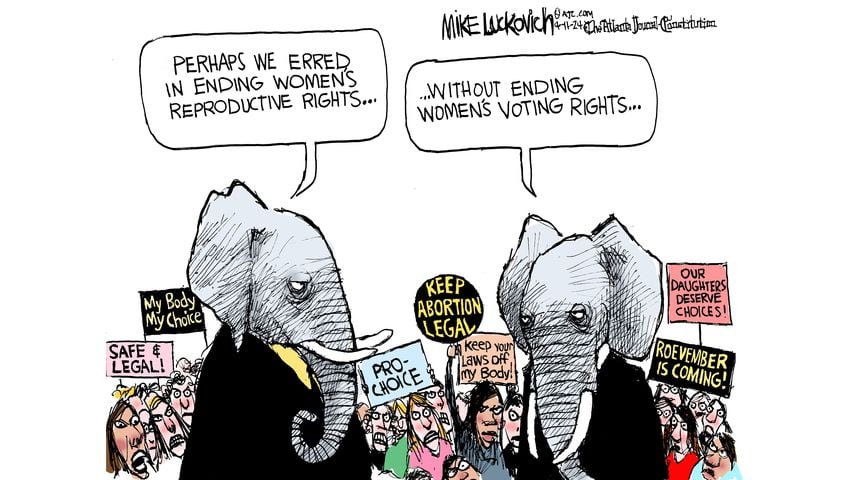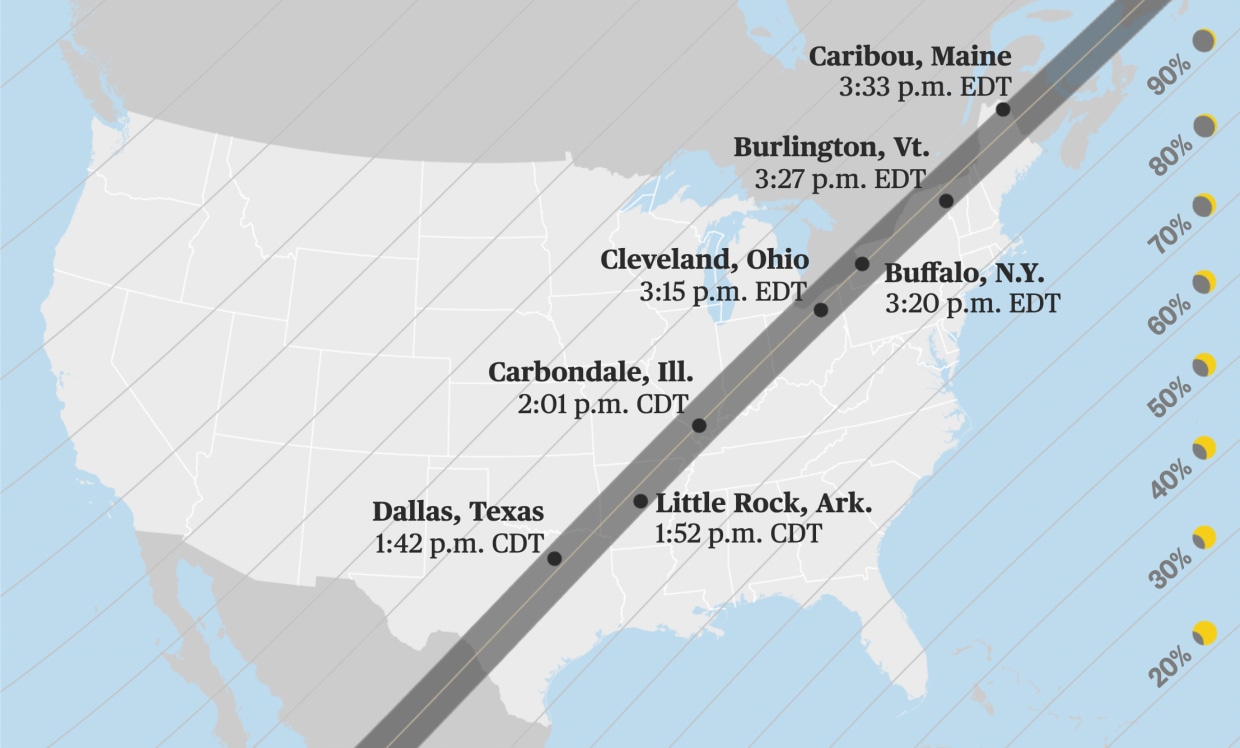I wouldn’t believe Donald Trump if his tongue were notarized.
- potential juror not seated for Trump trial
This week's featured post is "Defending American Values: Trial by Jury".
This week everybody was talking about the dysfunction of the House GOP

I guess all's well that ends well. Saturday, pro-Russia House Republicans were finally overcome and the Ukraine aid President Biden requested last September was approved. The aid passed with Democrats voting 210-0 in favor and Republicans 101-112 against.
The road to that vote was very strange. Typically, passing a bill begins with passing a set of rules for the vote. The rules resolution defines the process for passing the bill, including the timing of the vote and what amendments will be in order. This is done through the Rules Committee, which typically is a rubber-stamp for the Speaker, whose party has a majority on that committee. Rules Committee votes are often party-line.
This time, though three Republicans voted against the rule, which only got out of the committee because Democrats supported it. Similarly on the floor of the House, 55 Republicans voted against the rule, which would have failed without Democratic support.
The Senate is expected to pass the Ukraine aid package tomorrow, and the weaponry (some of which is already stockpiled in Europe), should start arriving within days.
Marjorie Taylor Greene, who Colorado Republican Rep. Ken Buck accused of "mouthing Russian propaganda", reiterated her threat to oust Johnson (in the same manner Kevin McCarthy was removed in October after refusing to shut down the government), but did not bring her vacate-the-chair resolution to the floor before the House adjourned.
That could mean that she knows she doesn't have the votes, but it's hard to say for sure.
This whole episode points out the dysfunction of the House's right wing. They managed to delay Ukraine aid, but not stop it. And they got nothing in exchange for letting it pass.
In February, Senator Lankford (R-OK) had negotiated a Ukraine-aid package that included very much of what the GOP wanted in a border bill. But Trump decided he wanted the border as an issue in November, so he torpedoed that compromise.
So now Republicans get to complain that we are spending money to secure Ukraine but not to secure our southern border, but it's empty rhetoric. Democrats were willing to take action on the border, but Republicans weren't.
One of the most ridiculous stories of the week was the Freedom Caucus worrying that Speaker Johnson was going to launch a surprise attack on them.
Conservatives in the House Freedom Caucus are signing up to take shifts to monitor the chamber floor in order to prevent their own party leaders from making unilateral moves that could curb their power.
This group called itself the Floor Action Response Team, a.k.a. FART. You can't make this stuff up.
and Trump's trial

Last week I was hearing that it might take as long as a month to find a jury for Trump's Manhattan trial, which began last Monday. In fact, 12 jurors and six alternates were in place by Friday. Opening statements are happening this morning.
The most unsettling story of the week (other than the disturbed man who set himself on fire to send a message that no one has been able to decipher) was MAGA-world's attempt to rig and intimidate the jury. In the featured post, I take a step back and consider Trumpists' attacks on the jury system as part of their larger authoritarian project.
Trump has quite obviously been defying Judge Merchan's gag order. The judge will hold a hearing tomorrow. What he decides to do should tell us a lot about how the trial will proceed.
It's obvious that Trump believes he can't be jailed, and that any fines will just be the cost of doing business. I'll be curious to see how Merchan punctures that confidence. I hope he has had somebody working on the logistical problem of jailing a man with Secret Service protection. A good first step would be to send Trump on a tour of the facilities Merchan has picked out.
Trump is having trouble accepting the fact that he has been indicted by a grand jury of American citizens, and so is a criminal defendant.
Case in point: Barron Trump's high school graduation. Trump asked Judge Merchan to adjourn the trial for a day on May 17 so that he can go to the ceremony. Merchan said maybe; if the trial is on schedule then, an adjournment might happen. Trump took this as a rejection and complained bitterly on social media, inciting his followers to denounce the judge. (Michael Cohen then posted that Trump had never attended his other children's graduations, which seems not to be true.)
But the upshot is that Trump is being treated like what he is: a criminal defendant. Defendants don't typically get to arrange the court schedule for their own convenience. They also don't get to control the court sketch artist or the room's thermostat, or to prevent reporters from mentioning that they fall asleep in court.
Merchan is simply using the levers he has to keep Trump under control: If Trump keeps trying to delay the trial any way he can, he won't get to go to Barron's graduation. In other words: If you want something from me, behave yourself.
My conclusion: Trump knows he won't behave, and is already setting up to deny that it will be his own fault when he misses the graduation.
Trump scheduled a rally Saturday in North Carolina, but cancelled it due to weather. It's got to be wearing on him to go so long without the encouragement of a worshiping crowd.
If there's one person who's enjoying all this, it's Jimmy Kimmel. While he was hosting the Oscars over a month ago, Kimmel read aloud Trump's social-media rant against Kimmel's performance, and then addressed Trump directly:
Thank you for watching. I'm surprised you're still [up]. Isn't it past your jail time?
Five weeks later, Trump hasn't been able to let that go, so Wednesday he used his day off from court to post another rant about Kimmel and the Oscars, pretending it was Kimmel who couldn't get over it.
Stupid Jimmy Kimmel, who still hasn’t recovered from his horrendous performance and big ratings drop as Host of The Academy Awards, especially when he showed he suffered from TDS, commonly known as TRUMP DERANGEMENT SYNDROME, to the entire World by reading on air my TRUTH about how bad a job he was doing that night, right before he stumbled through announcing the biggest award of all, ‘Picture of the Year.’
Wednesday night, Kimmel took this apart line by line: Ratings were up, and as the host, Kimmel didn't present any awards.
The person who presented the [Best Picture] award was Al Pacino, not me. We are different people. ... You’d think he would know that because I’m pretty sure ‘Say hello to my little friend’ is what he said to Stormy Daniels that got him in all this trouble.
Kimmel later suggested that if he hosted again next year, Trump might be able to watch "on the TV in the Rec Room at Rikers". The whole monologue is worth watching, and proves that a politician should never get into a back-and-forth with a comedian.
The phrase "Trump derangement syndrome" is a classic projection, as Kimmel pointed out. ("There's only one person who suffers from Trump derangement syndrome. His name is Donald Trump.") The surest way to get yourself diagnosed with TDS is to look at facts about Trump, apply ordinary standards of morality and decency, and reach the obvious conclusion that the man is a piece of shit.
But what's truly deranged is the way Trump cultists distort reality to justify whatever their idol does. Take sexual assault, for example. At least two dozen women have publicly accused Trump of some form of inappropriate sexual advances, up to and including rape. Their stories are remarkably similar, and they track with the behavior Trump bragged about on the Access Hollywood tape.
The Trump cult explanation is simple: All the women are lying, and Trump's confession was meaningless "locker room talk".
Who's deranged here?
Kevin McCarthy is trying to normalize Trump's denial of the 2020 election by asking "Has Hillary Clinton ever said she lost the 2016 election?" Yeah, she did. On national TV. There's video.
and Israel/Iran
Cooler heads may be prevailing. The tit-for-tat between Israel and Iran seems to be dying down and may have ended. After Israel bombed Iran's diplomatic compound in Damascus, Iran vowed to retaliate. On April 13, it sent over 300 drones and missiles flying towards Israel, nearly all of which got knocked down. Then it was Israel who vowed to retaliate, which it did early Friday morning.
Israel attacked a military base very close to a major Iranian nuclear facility. So the attack was mostly a message: If we had wanted to strike something much more important, you couldn't have stopped us. So far, Iran seems to be ignoring this attack, at least in public.
So we can hope that this particular episode is over, and Iran will go back to fighting Israel through proxies like Hamas and Hezbollah.
and the Supreme Court

The Court has some interesting cases lined up this week, which is the final week of arguments in this term. Thursday, it will hear arguments on Trump's claim of criminal immunity. The big question here is not whether it will find in his favor, but whether it will continue playing along with his delay strategy. (I have a fantasy in which the Biden administration files an amicus brief, urging the Court to decide this case quickly so that Biden knows what laws he can break before his term ends. In particular, can he order the assassinations of certain justices while he still has time to nominate replacements?)
Liz Cheney writes:
Mr. Trump believes he can threaten and intimidate judges and their families, assert baseless legal defenses and thereby avoid accountability altogether. Through this conduct, he seeks to break our institutions. If Mr. Trump’s tactics prevent his Jan. 6 trial from proceeding in the ordinary course, he will also have succeeded in concealing critical evidence from the American people — evidence demonstrating his disregard for the rule of law, his cruelty on Jan. 6 and the deep flaws in character that make him unfit to serve as president. The Supreme Court should understand this reality and conclude without delay that no immunity applies here.
Today, the Court is hearing arguments in Grants Pass v Johnson, which involves a longstanding principle of American law: In order to break the law, you have to do something, not just be a certain kind of person.
The issue here is homelessness. Grants Pass has such sweeping laws against sleeping in public that it is nearly impossible for a homeless person to live there and stay within the law. On the one hand, it seems like it shouldn't be illegal simply to be homeless. On the other, municipalities want to have some way to regulate homeless encampments, which can be health hazards.
Wednesday, it's time for Idaho v United States. Here the issue is a Reagan-era law known as the Emergency Medical Treatment and Labor Act, Emtala for short. Emtala requires emergency rooms to treat people who show up there (or risk losing Medicare and Medicaid funding).
The case was brought after Idaho imposed a near-total abortion ban that allowed doctors to perform an emergency abortion only if a pregnant patient was on the brink of death.
That law is in direct conflict with Emtala, which requires doctors to stabilize emergency patients so they won’t face severe health consequences – a radically lower bar for intervention than Idaho’s. Shortly after Roe was overturned, the Biden administration issued a guidance stating that the federal law pre-empts state abortion bans, ultimately suing Idaho over its ban.
So if a woman with a problem pregnancy shows up at an emergency room in Idaho, and isn't at death's door, but needs an abortion to, say, preserve her future fertility or prevent some problem that may lead to death in a week or two, what should happen?
These cases should all be decided by the end of the term in June.
and you also might be interested in ...
Not content to simply waste its own time, the House Republican majority tried to waste the Senate's time as well. The Senate refused.
The House had impeached Homeland Security Secretary Alejandro Mayorkas essentially for policy differences. Ostensibly, he was charged with refusing to observe a 1952 law requiring applicants for asylum to be detained until a decision is reached -- something no administration has done in recent years, largely because Congress hasn't appropriated the money to do it. (One of the goals of the border bill that Trump torpedoed was to streamline the asylum process by funding more courts and judges.)
Once an impeachment has been voted by the House, the Senate is supposed to drop all its other business and hold a trial. Republicans were hoping for a grand show trial that would give them a stage to pontificate about border issues.
Democrats refused to play ball. In short order, a party-line vote (where Republican Lisa Murkowski voted Present rather than No) ended the trial because the bill of impeachment "does not allege conduct that rises to the level of a high crime or misdemeanor” as required in the Constitution.
Workers at a Volkswagen factory in Chattanooga overwhelmingly voted to join the United Auto Workers. The factory had rejected the union in 2014 and 2019, but this time the union held nearly a 3-1 majority. Historically, the South has not been welcoming to unions.
and let's close with something spectacular
Two of nature's most striking spectacles are the Northern Lights and a volcano erupting at night. In Iceland, you can sometimes get both.

















